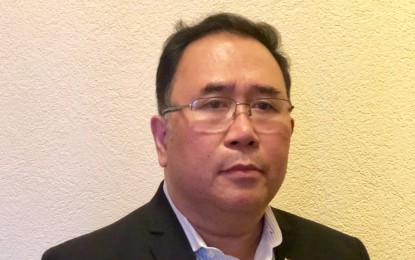
Undersecretary Severo Catura, Executive Director of Presidential Human Rights Committee (PNA File photo)
MANILA – None of the 30 local groups out of the 61 organizations that filed a petition before the United Nations Human Rights Council (UNHRC) has ever engaged the current administration on human rights concerns in the last four years.
This, according to Undersecretary Severo Catura, Executive Director of Presidential Human Rights Committee, in a statement on August 28.
Catura was referring to the petition of 61 organizations calling for the UNHRC to “urgently launch an international investigative mechanism on the human rights situation in the Philippines” that has been making the rounds in the UN headquarters in Geneva, Switzerland since Aug. 27.
“Not only are we not aware of what exactly the specific advocacies of these organizations are, but most of these organizations are not even known in the Philippine human rights community, much less by the Filipino people,” he said, adding that of the 61 petitioners, 31 are Filipino groups.
The move, he said, is obviously timed for the coming 45th UNHRC session that will start on September 14, 2020.
“The UN, specifically its human rights bodies, such as the UNHRC, has always been open to receiving such petitions from interest groups. However, member-States, such as the Philippines, also have the responsibility to protect the body from being used as a platform for vilification if only to preserve its integrity as an overseer of States,” he said.
Protection of integrity
The nature of the petition, Catura said, compels the Philippines to protect the integrity of this civic space by weighing in the sentiments of some 21 organizations against the views of the thousands of other organizations.
“The views of a minority are welcome in a democratic space, but that same space, lest it is forgotten, cannot favor any act by that same minority to impose its will on the majority,” he said.
Open for engagement
He added that the Philippine government, in keeping with its policy of transparency and of encouraging inclusivity, remains open for engagement with any and all organizations on all matters of human rights.
“We call upon these organizations to do so, even as it is advised that the Commission on Human Rights of the Philippines (CHRP) should also be involved in their efforts,” he said.
The call for an international investigative body demeans as it disregards the value of the CHRP as the country’s independent national human rights institution, he added.
Catura went on to say that at the 44th UNHRC session in June this year, UN High Commissioner for Human Rights (HCHR) Michelle Bachelet reported on the country’s human rights situation with an overwhelming majority of 24 States (including the ASEAN speaking as one) out of 39, lauded the Philippines’ human rights record, with most criticizing the highly politicized charges of human rights violations against the Philippine government.
The countries that came to the Philippines’ defense were China, Russia, Thailand, Venezuela, Saudi Arabia, Kuwait, Sri Lanka, Syria, Iran, Jordan, Belarus, Indonesia, Lao DPR, Japan, Cambodia, Bahrain, Lebanon, Iraq, Azerbaijan, Vietnam, Myanmar, Cuba, and Nicaragua.
Respect outcome of UNHRC process
He advised interest groups to respect the outcome of that UNHRC process given that the Philippines’ human rights situation has already been laid out for scrutiny at the UNHRC and a majority of its member-States have spoken,
“This much they owe not only to the Office of the HCHR that crafted the human rights situation report on the Philippines that took into account all relevant information from various sources but to the UNHRC member-States as well that painstakingly studied the report and expressed their objective views in plenary at the last UNHRC session,” he said.
The Philippines, he said, takes pride in a sovereign democratic society where rights and freedoms are exercised freely.
“Once dubbed as the NGO Capital of the World, the Philippines is home to some 101,000 registered non-profit organizations that include people’s organizations and civil society groups operating within the safe confines of a civic space protected by the State as the duty bearer of human rights and the primary human rights defender,” Catura said.
The Philippine government continues to take significant steps to further its human rights work despite the systematic vilifications that are aimed to undermine this pursuit, he added.
“After all, as President Duterte declared in his State of the Nation Address in July this year, ‘we will not dodge our obligation to fight for human rights’,” he said.
